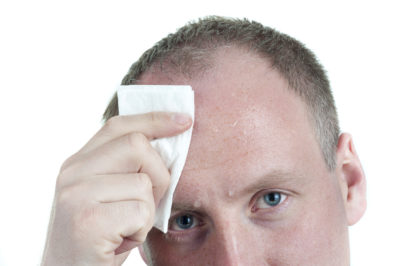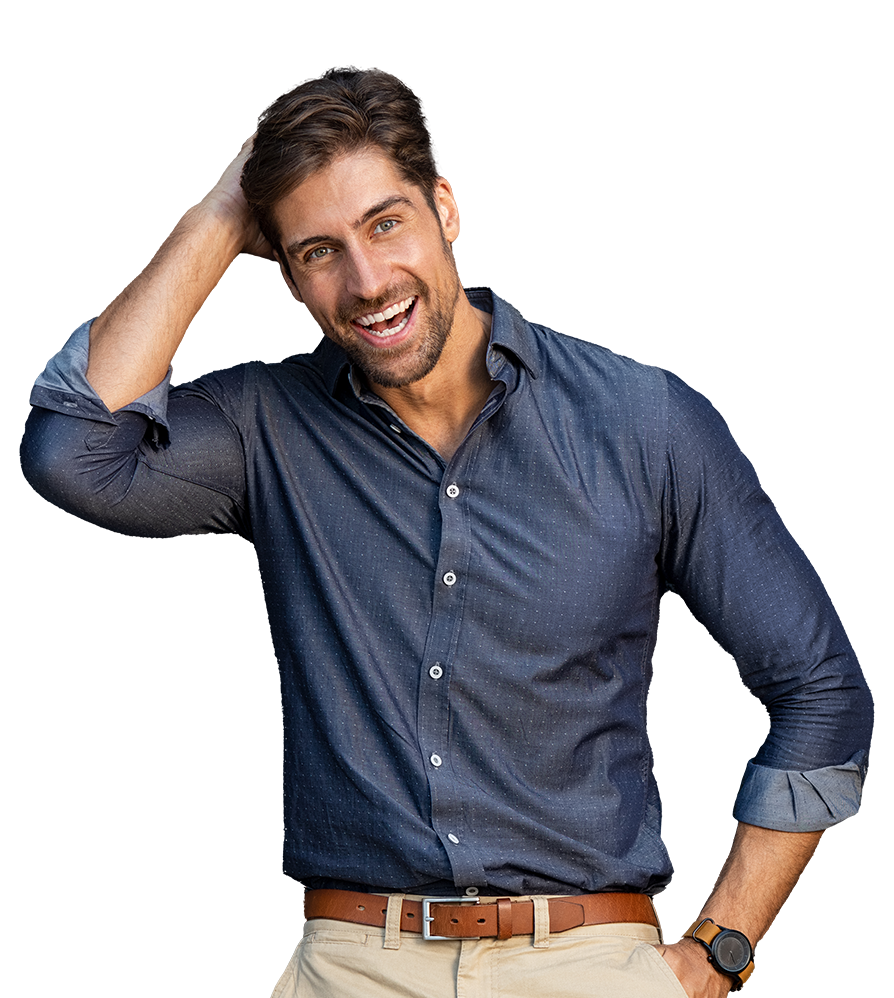What do you feet and underarms have in common? They can both generate an unpleasant odor from sweating or lack of hygiene.
But what about your scalp? Yes, it can emit unpleasant odors too. But since you can’t smell the top of your head, this phenomenon could be easy to miss and end up causing you embarrassment.
There are various possible reasons for a smelly scalp. And pinpointing the culprit is the key to finding a solution.

Heavy Sweating. Skipping the post-workout shower can cause the build-up of sweat to mix with bacteria on your scalp.
Hair Products. Even the most heavenly scented styling product, shampoo, or conditioner can lead to a build-up of oils if not thoroughly washed out.
Under-Washing. While there is no need to wash your hair daily, going too long between washes allows oils, bacteria, and hair product residue to accumulate.
Hormonal Changes. Hormonal changes play a significant role in hair and scalp health. For example, excess amounts of androgen can result in an over-production of oil from your scalp’s glands and – you guessed it – cause the scalp to smell unpleasantly.
Diet. One’s diet, or sudden dietary changes, may lead to scalp odor, some research suggests.
Pollution. Environmental pollutants and odors can cling to our hair and scalp and cause friends to pinch their noses.
Seborrheic Dermatitis. Thought to be caused by an overgrowth of natural yeast, this condition produces yellowish, dry, scaly patches on the scalp and can cause it to smell.
Fungal Infections. Fungus that lives on the scalp can cause inflammatory reactions like eczema, dandruff, and folliculitis.
Psoriasis. Scalp psoriasis can result in fine scales or a series of thick, crusty plaques that may tempt you to skip washing the affected area. However, doing so can lead to oil and skin cell build-up and a consequential unpleasant odor.
When to See a Hair Transplant Doctor
If changing out hair care products, more frequent or more thorough washing, or subtle dietary changes don’t banish scalp odor, it might be time to see a doctor who can evaluate more serious causes and present a treatment plan. Depending on cause, treatment can be as simple as a specialty or medicated shampoo, or an oral or topical medication.
People don’t come to DiStefano Hair Restoration Center to deodorize their scalps, but they do come for help in restoring their once resplendent head of hair. If you notice hair loss or thinning even if it increases a slow but steady pace, don’t wait too long – come see us for a free consultation and a treatment plan we’ll customize just for you. Just as we do for all our patients.


